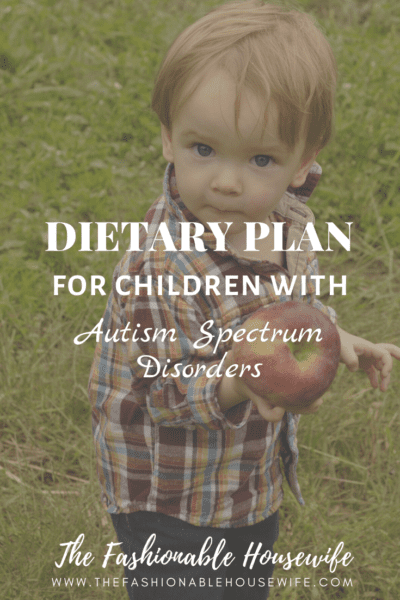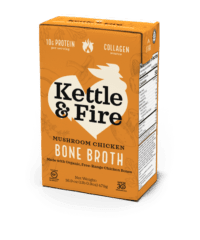
Autism Spectrum Disorder (ASD) is a complex neurological and developmental disability that affects a person’s ability to properly communicate with the people around him/her.
The condition typically appears during the first three years of life affecting the brain function, especially in the areas of social interaction, imagination, and communication skills.
There’s no permanent cure for ASD, but several symptoms can be controlled with proper therapies and diet.
While it’s quite challenging to feed an autistic child, a balanced, nutritious diet can make a huge difference in their behavior and ability to learn just like it does for kids with ADHD. You just need to give them the right food and avoid the ones that can be harmful.
Foods for Children With Autism Spectrum Disorder

There are different kinds of foods and supplements available in the market, which can help with the symptoms of ASD. They must contain proper nutrition, which will help improve your child’s immune system and gut health.
Foods Rich in Vitamins & Mineral
Most children with this disorder are born with abnormal or impaired metabolic or biochemical systems. In that case, a high dose of vitamins and minerals may be effective in treating such conditions.
Children need a significant amount of vitamins and minerals, such as vitamin A, B6, C, zinc, and magnesium among others, for proper mental and physical growth.
Since an autistic child can also be a picky eater, there’s a high possibility that he/she will suffer from vitamin deficiency.
Supplements can be found in various superfood stores and pharmacies. However, do proper research to find the best supplements for autism spectrum disorder before purchasing anything.
Foods Rich in Omega-3 fatty Acids
Children can suffer from a wide range of behavioral, learning difficulties, as well as neurodevelopmental disorders due to the lack of essential fatty acids.
Foods rich in omega-3 fatty acids play an important role in brain function and development. These fatty acids have also been shown to improve conditions like behavioral issues, mood disorders, and coordination disorders.
Fatty fish, such as salmon, tuna, and sardines, walnuts and flaxseeds are some of the foods that contain a significant amount of omega-3 fatty acids. You can also try fish oil or supplements if your child refuses to eat those foods.
Enzymes & Probiotics
Probiotics can reduce gut inflammation as well as increase the number of healthy gut bacteria.
They are found in fermented foods such as kefir, non-dairy yogurt, fermented cod liver oil, and cultured vegetables such as kimchi and raw sauerkraut.
You can also take probiotics as yogurt drinks or as powders. There are some digestive enzyme products manufactured for people with autism that you can try for your child.
Bone Broth

Since autistic children are born with a leaky gut, it’s essential to include foods in their diet that can improve their immune system.
Bone broth can be an excellent choice to add in their regular meal. The bone stock is a great source of amino acids and minerals that can improve the gut health and boost the immune system. We personally use and recommend Kettle & Fire bone broths because they are high quality and taste great, especially if you aren’t in the business of making your own bone broth. Kettle & Fire is also easily accessible and can be purchased in most grocery stores, Whole Foods, as well as online at kettleandfire.com.
Foods You Must Avoid
While you’re planning a perfect diet for your child with ASD, you need to exclude certain foods as well. Including those foods in the diet can worsen symptoms instead of improving them.
Gluten
Children with autism are born with an abnormally leaky gut. The gluten and casein protein found in the food can’t be digested properly due to the poor gut function.
These components leak into their bloodstream and hamper the normal functioning of the nervous system, which affects their behavioral and mental growth.
Foods such as pasta, bread, cereals, rye, and barley are high in gluten. However, you can still feed your child with wheat products such as bread or pasta if they are labeled gluten-free.
Corn
If your child insists to have cornflakes or popcorn, then you must find a substitute for those foods. This grain is mostly raised with pesticides and can be extremely harmful to the physical and mental growth of children.
A study published in 2013 suggests that exposure to the herbicide glyphosate can be associated with the risk of autism.
Additionally, corn contains the most unhealthy fatty-acids among other grains, meaning that many potentially harmful things that can come from eating corn.
Sugar
You must avoid sugar at any cost if your child has autism spectrum disorder because sugar is pro-inflammatory and can increase erratic brain cell firing.
Several studies have reported that autistic children have impaired glucose tolerance and excessive levels of insulin meaning that consuming sugar can elevate improper insulin signaling.
Dairy Products
Dairy products contain a protein called casein.
When this protein combines with stomach acid, it produces something called an exorphin, which can cause problems like spaciness, brain fog, inability to concentrate, and a numbness to pain.
Also, dairy products are considered one of the most pro-inflammatory foods. Since inflammation has been associated with autism, children with ASD must avoid them.
Most people experienced that their children started talking more, their bowel problems were resolved, and hyperactivity was reduced after they removed dairy from their diet.
Artificial Ingredients
Foods containing artificial colors, flavors, and pesticides are not optimal for anyone, but especially not for children with ASD.
Artificial ingredients found in processed foods can cause a spike in the symptoms of autism. Even research has shown the connection between autism symptoms and preservatives in our food supply.
While preparing food for your child, remove all preservatives, additives, artificial dyes, and sweeteners. While doing grocery shopping, check if the food you’re buying contains any of these items.

Final Thoughts
If your child has ASD, paying close attention to the food he/she is consuming is particularly important.
While there are some foods that can provide essential nutrients, certain foods do exactly the opposite. That’s why it’s crucial to avoid foods that contain gluten, casein, and artificial ingredients, all of which may worsen the symptoms.
However, there are insufficient studies on the foods that can improve the symptoms. Besides, not every child will respond similarly to a particular diet.
That’s why it’s highly recommended that you consult with a dietician before you change your child’s diet.



